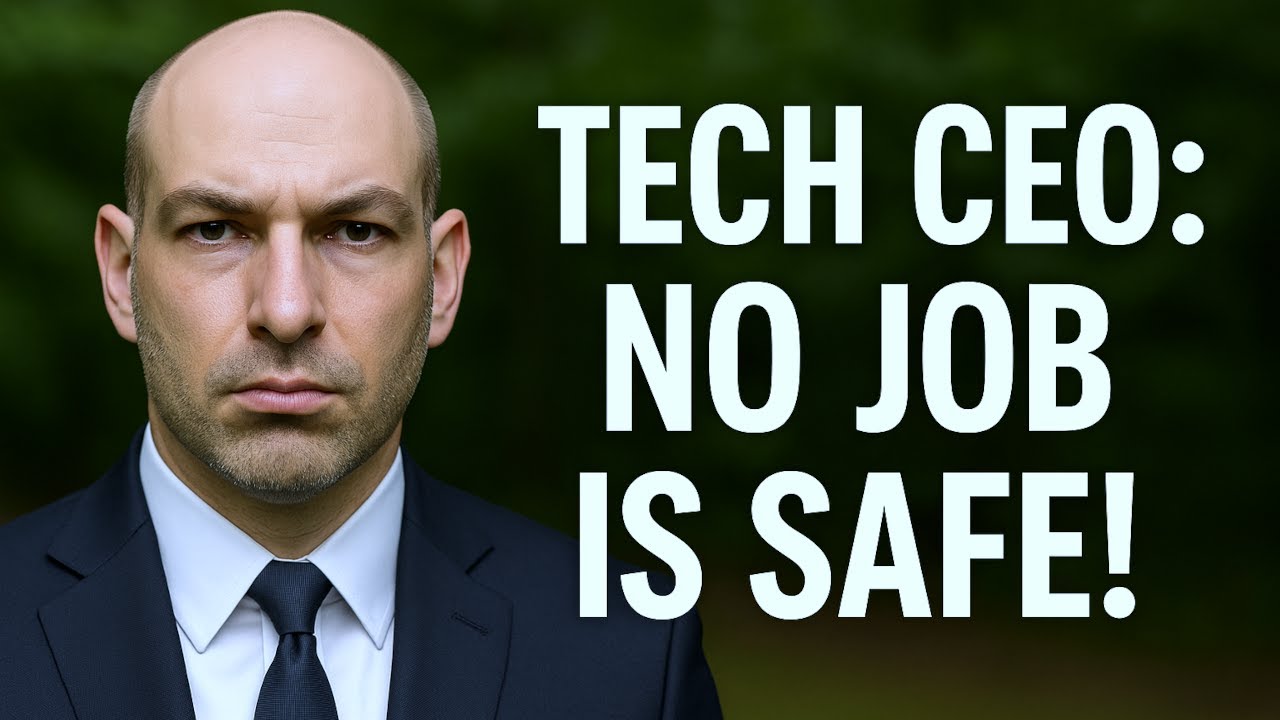The video discusses how AI, especially generative AI like ChatGPT, has already become mainstream, transforming industries and impacting jobs across all sectors. It highlights a leaked memo from Fiverr’s CEO warning that AI will automate many tasks, urging individuals and organizations to upskill, master AI tools, and adapt quickly to stay relevant in the evolving job market.
The speaker begins by discussing the concept of crossing the chasm, a term from a 2006 book about tech adoption, which describes the critical point when a new technology moves from early adopters to mainstream acceptance. They highlight how AI, particularly generative AI like ChatGPT, has already crossed this threshold into mainstream consciousness, with widespread adoption by Fortune 500 companies and integration into major platforms like Office 365 and Google Cloud. Despite skepticism from some industry experts about whether AI has truly become mainstream, the speaker argues that the rapid adoption rates and the number of active users indicate that AI is now a significant part of everyday life and business.
The speaker shares insights from a tech strategist who emphasizes that the total addressable market for AI users is vast, but the early adoption phase is relatively small compared to the potential user base. They point out that current user numbers, estimated in the billions, far exceed the threshold needed for AI to be considered mainstream. The discussion underscores that the economic and user engagement metrics suggest AI has already broken into the mainstream, even if some skeptics remain cautious about defining it as fully mainstream based on paid subscriptions alone.
Next, the speaker presents a leaked internal memo from Micah Calfman, CEO of Fiverr, which starkly warns that AI is coming for all jobs across industries. The memo emphasizes that no matter the profession—whether programming, design, law, or customer support—AI will automate tasks that were once considered easy, hard, or impossible. It urges employees to become exceptional talents and master AI tools to stay relevant, warning that failure to adapt quickly could lead to career obsolescence within months. The message is a wake-up call for individuals and organizations to proactively embrace AI and upskill accordingly.
The memo also provides practical advice for adapting to the AI-driven future. It encourages studying and mastering AI solutions, collaborating with knowledgeable colleagues, and becoming proficient in prompt engineering—using AI as a core skill. The CEO stresses the importance of working smarter, faster, and more efficiently, leveraging AI to improve productivity and organizational effectiveness. Employees are urged to take initiative, contribute ideas, and create opportunities for growth rather than waiting for external prompts, emphasizing that those who act now will have a better chance of thriving in the evolving landscape.
In conclusion, the speaker reflects on the dual reality of AI’s impact: while many will face job displacement, those who adapt and leverage AI will find new opportunities for success. They acknowledge that the environment is highly target-rich for those willing to learn and innovate, but also warn that ignoring the reality of AI’s influence could be detrimental. The overall message is one of urgency and empowerment—encouraging individuals and organizations to recognize AI’s significance, prepare accordingly, and actively participate in shaping their future in this rapidly changing technological landscape.
